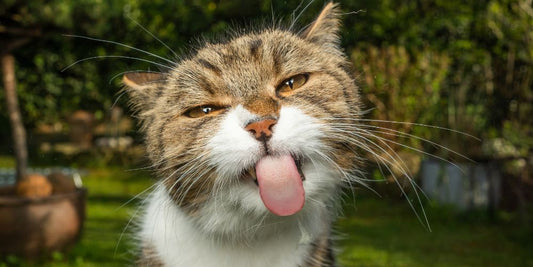As pet owners, we strive to ensure the health and well-being of our furry companions, and one crucial aspect is protecting them from parasites. While conventional preventive measures are widely known and recommended by veterinarians, there is growing interest in natural approaches to pet parasite prevention. But are these alternative methods truly effective, or are they merely myths? Let's explore some natural remedies and approaches, their potential drawbacks, and how they can complement conventional preventive measures.
Herbal Repellents
Many herbs, such as neem, lavender, and rosemary, are believed to possess natural insect-repelling properties. These herbs are often used in sprays or collars. While some studies suggest that certain essential oils can deter parasites, their effectiveness may vary based on factors like the individual pet's sensitivity and the specific parasite they are targeting. Additionally, some essential oils can be toxic to pets, so it's crucial to consult with a veterinarian before using any herbal repellents.
Diatomaceous Earth (DE)
Food-grade diatomaceous earth, a fine powder made from fossilised algae, is often used as a natural pest control method. When applied to a pet's fur or living spaces, DE can be effective in absorbing the waxy layer of parasites, leading to dehydration and death. However, DE should be used with caution, as inhalation can irritate the respiratory tract, and it must be kept dry to remain effective.
Apple Cider Vinegar
Advocates claim that adding apple cider vinegar to a pet's diet or using it as a spray can create an inhospitable environment for parasites due to its acidic nature. While there is limited scientific evidence to support this claim, some pet owners report positive results. However, excessive use of vinegar can disrupt the pet's pH balance, so moderation is essential.
Garlic and Brewer's Yeast
These dietary supplements are often touted as natural flea and tick repellents. While some pets may experience a reduction in flea infestations, the effectiveness can vary widely among individuals. Moreover, high doses of garlic can be toxic to pets, especially cats, so it's crucial to follow safe dosing guidelines.
Regular Grooming and Cleaning
Although not necessarily a natural remedy, regular grooming and cleaning are essential components of any parasite prevention routine. Frequent baths, brushing, and checking for parasites manually can help identify infestations early on and reduce the risk of them spreading.
While natural approaches to pet parasite prevention can offer some benefits, it's crucial to recognise their limitations and potential drawbacks. They may not provide comprehensive protection against all parasites, and individual pet responses can vary widely. Therefore, it's best to view these methods as complementary to conventional preventive measures rather than standalone solutions.
Ultimately, the most effective way to protect your pet from parasites is to work closely with your veterinarian to develop a comprehensive prevention plan tailored to your pet's specific needs. Combining regular veterinary check-ups, appropriate preventive medications, and safe natural approaches can help ensure your beloved pet stays happy and parasite-free. Always prioritise your pet's health and seek professional advice before incorporating any new parasite prevention methods into their care routine.
Pet Lovers Club offers comprehensive pet parasite protection for your beloved cats and dogs – delivered right to your door, every month. Keep your pets healthy and safe, and sign up today.






